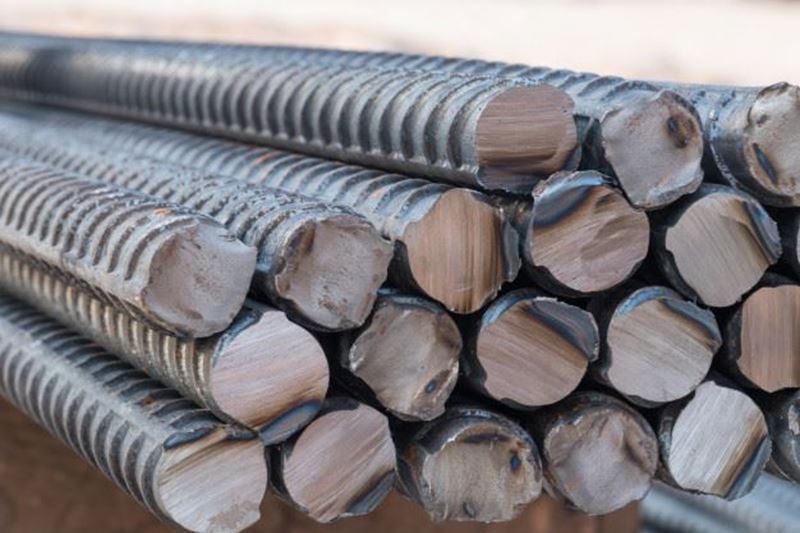The Promise And Peril Of Chinese Car Manufacturing

Table of Contents
The Promise: China's Ascendance in the Global Automotive Market
China's automotive industry is rapidly transforming, driven by technological innovation, cost efficiency, and a massive domestic market. This creates a powerful combination that is reshaping the global automotive landscape.
Rapid Technological Advancement and Innovation
China is making significant strides in electric vehicle (EV) production, battery technology, and autonomous driving. Government support and substantial investments are fueling this rapid advancement.
- Electric Vehicle (EV) Production: Chinese manufacturers are leading in EV production volume, with several companies ranking among the world's top EV producers. This is fueled by substantial government incentives and a growing consumer demand for electric cars.
- Battery Technology Advancements: China is a global leader in battery technology, with advancements in battery chemistry, energy density, and charging speed. Companies are aggressively pursuing solid-state battery technology and other next-generation solutions.
- Autonomous Driving Initiatives: Significant investment is being poured into autonomous driving technology, with Chinese companies developing advanced driver-assistance systems (ADAS) and self-driving capabilities. This is supported by government initiatives to create the infrastructure necessary for autonomous vehicles.
- Government Support for R&D: The Chinese government provides generous subsidies and tax breaks for research and development in the automotive sector, particularly in areas like EVs and autonomous driving, fostering rapid innovation within the Chinese auto industry.
For example, companies like BYD and NIO are leading the charge in electric vehicle technology, consistently introducing innovative models and pushing the boundaries of battery technology and range.
Cost Competitiveness and Manufacturing Efficiency
Chinese car manufacturers benefit from lower labor costs, efficient supply chains, and economies of scale, leading to highly competitive vehicle prices.
- Lower Labor Costs: Compared to other major manufacturing hubs, China's labor costs remain relatively low, contributing significantly to the lower manufacturing costs of Chinese vehicles.
- Efficient Supply Chains: Well-established and integrated supply chains optimize production processes, minimizing costs and ensuring timely delivery of components.
- Economies of Scale: The sheer volume of vehicle production in China allows for significant economies of scale, further reducing costs and increasing competitiveness.
This cost advantage allows Chinese brands to offer competitive pricing, appealing to both domestic and international buyers seeking affordable and reliable vehicles. This is especially significant in the global electric vehicle market, where price sensitivity is often a key factor for consumers.
Growing Domestic Market and Consumer Demand
China boasts the world's largest automotive market, with a rapidly expanding middle class and rising disposable incomes fueling substantial demand.
- Largest Automotive Market: China’s immense domestic market provides a crucial foundation for Chinese car manufacturers to grow and gain experience.
- Increasing Middle Class: A burgeoning middle class is increasingly purchasing vehicles, driving significant growth in the automotive market.
- Rising Disposable Incomes: Higher disposable incomes allow more Chinese consumers to afford cars, leading to an increase in overall demand.
This huge domestic market provides a crucial testing ground and a substantial sales base for Chinese car brands, allowing them to hone their manufacturing capabilities and refine their products before venturing into international markets.
The Peril: Challenges Facing Chinese Car Manufacturers
Despite the promising outlook, Chinese car manufacturers face significant hurdles in their pursuit of global dominance.
Brand Perception and Quality Concerns
Overcoming negative stereotypes associated with the quality and reliability of Chinese-made vehicles remains a significant challenge for many Chinese car brands aiming for international expansion.
- Overcoming Negative Stereotypes: Many international consumers still hold perceptions of lower quality and reliability, a legacy from past generations of Chinese-made products.
- Building Brand Trust Internationally: Building trust and a strong brand reputation in overseas markets requires consistent delivery of high-quality products and exceptional customer service.
To overcome these challenges, Chinese automakers are investing heavily in quality control, advanced technologies, and strategic marketing campaigns aimed at improving their brand image and showcasing their technological advancements.
Geopolitical Risks and Trade Tensions
Trade wars, sanctions, and intellectual property concerns pose significant risks to the growth and global expansion of the Chinese automotive industry.
- Trade Wars and Sanctions: Geopolitical tensions and trade disputes can disrupt global supply chains and impact the ability of Chinese car manufacturers to export vehicles.
- Intellectual Property Concerns: Concerns about the protection of intellectual property rights can discourage collaboration and investment from international partners.
- Dependence on Global Supply Chains: Reliance on global supply chains can make Chinese companies vulnerable to disruptions caused by geopolitical events.
Navigating these geopolitical complexities requires careful strategic planning and diversification of supply chains.
Competition and Market Saturation
The automotive market is highly competitive, both domestically and internationally, presenting a significant challenge for Chinese manufacturers seeking to expand their market share.
- Intense Domestic Competition: Chinese manufacturers face fierce competition from established domestic players.
- Challenges in Penetrating Established Markets: Breaking into established markets in developed countries requires significant effort and investment in brand building, marketing, and distribution networks.
Strategies to overcome this include focused product development catering to specific market needs, strategic partnerships with international companies, and aggressive marketing campaigns tailored to specific regions.
Conclusion
The Chinese car manufacturing industry represents a powerful force in the global automotive market. While significant challenges remain, particularly in overcoming brand perception and navigating geopolitical complexities, the technological advancements, cost competitiveness, and massive domestic market position China for continued growth and a potential leadership role in the future of the automotive industry. The rise of Chinese electric vehicles is a particularly significant factor in this potential for future dominance.
Call to Action: Stay informed about the evolving landscape of Chinese car manufacturing. Further research into specific Chinese car brands and their innovative technologies will provide a clearer picture of the promise and peril that lies ahead in this dynamic sector. Understanding the complexities of the Chinese auto industry is crucial for anyone involved in or interested in the global automotive market.

Featured Posts
-
 Abb Vie Abbv Increased Profit Forecast Driven By New Drug Performance
Apr 26, 2025
Abb Vie Abbv Increased Profit Forecast Driven By New Drug Performance
Apr 26, 2025 -
 Hegseth And Pentagon Turmoil Exclusive Report On Leaks And Infighting
Apr 26, 2025
Hegseth And Pentagon Turmoil Exclusive Report On Leaks And Infighting
Apr 26, 2025 -
 Changes To Federal Disaster Relief Qualification Under Trump
Apr 26, 2025
Changes To Federal Disaster Relief Qualification Under Trump
Apr 26, 2025 -
 George Santoss Fraud And Identity Theft Trial A Potential 7 Year Sentence
Apr 26, 2025
George Santoss Fraud And Identity Theft Trial A Potential 7 Year Sentence
Apr 26, 2025 -
 Damen And Icdas Turkish Tugboat Project Announced
Apr 26, 2025
Damen And Icdas Turkish Tugboat Project Announced
Apr 26, 2025
Latest Posts
-
 Amphibien Und Reptilien In Thueringen Ein Umfassender Atlas
Apr 27, 2025
Amphibien Und Reptilien In Thueringen Ein Umfassender Atlas
Apr 27, 2025 -
 Entdeckung Der Herpetofauna Thueringens Der Neue Amphibien Und Reptilienatlas
Apr 27, 2025
Entdeckung Der Herpetofauna Thueringens Der Neue Amphibien Und Reptilienatlas
Apr 27, 2025 -
 Thueringens Amphibien Und Reptilien Der Neue Atlas
Apr 27, 2025
Thueringens Amphibien Und Reptilien Der Neue Atlas
Apr 27, 2025 -
 Thueringen Amphibien Und Reptilienatlas Erscheinen Des Umfassenden Werks
Apr 27, 2025
Thueringen Amphibien Und Reptilienatlas Erscheinen Des Umfassenden Werks
Apr 27, 2025 -
 German Politics Crumbachs Resignation And Its Implications For The Spd
Apr 27, 2025
German Politics Crumbachs Resignation And Its Implications For The Spd
Apr 27, 2025
